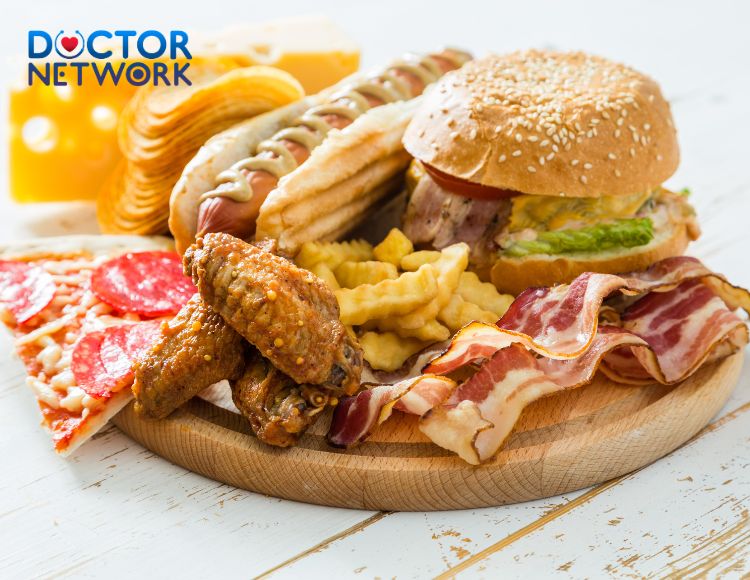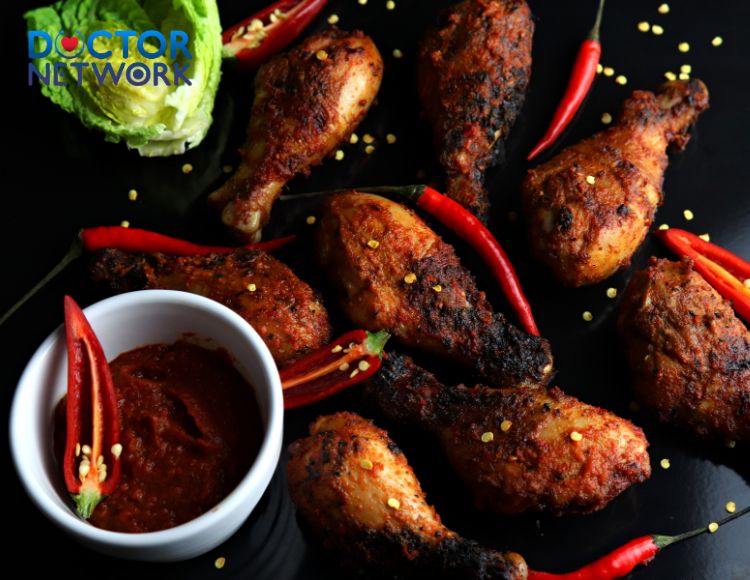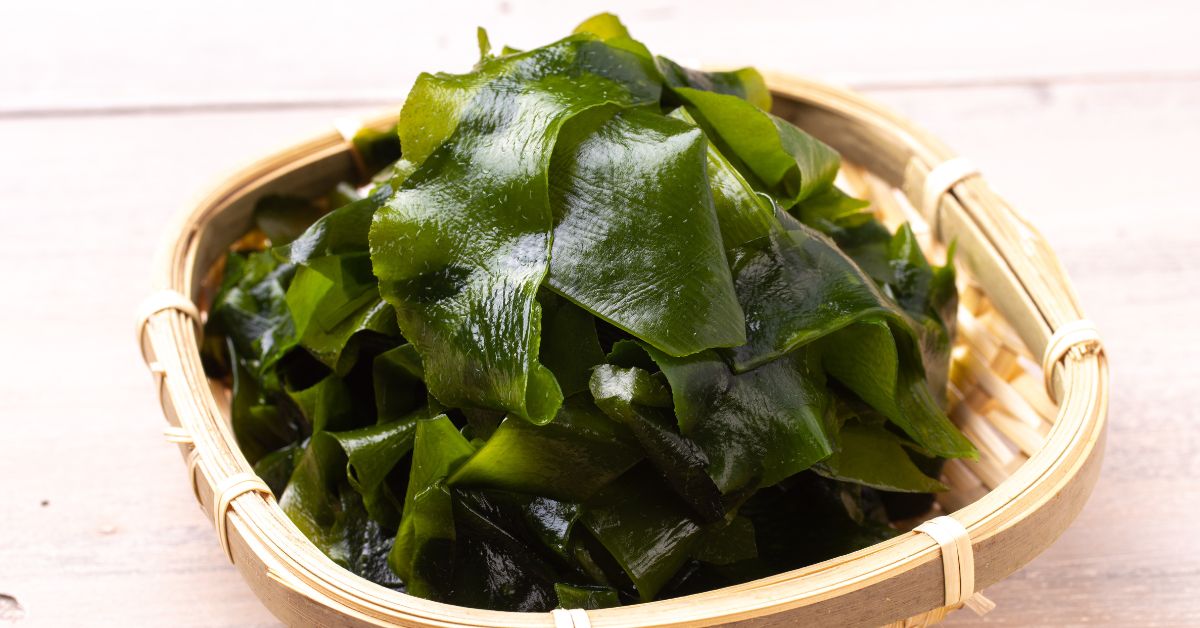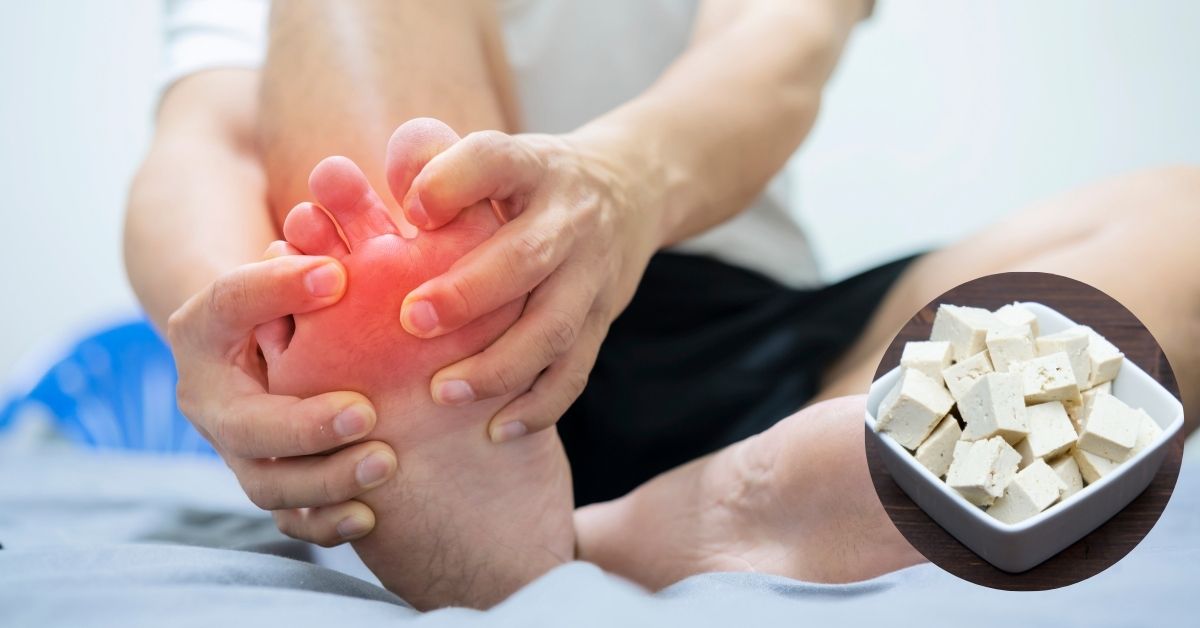Eye surgery, whether routine procedures like cataract removal or modern methods like LASIK, all require a certain recovery period. Proper post-operative care, including a balanced diet, promotes wound healing, minimizes the risk of complications, and helps you regain good vision quickly. So, what to avoid eating after eye surgery?
Why is dietary restriction necessary after eye surgery?
- Diet directly affects the wound healing process and the body’s immune function.
- Some foods may cause inflammation, swelling, slow down the recovery process, or even increase the risk of infection.
- Proper dietary restrictions after eye surgery play a crucial role in protecting eye health.
What to avoid eating after eye surgery?
- what to avoid eating after eye surgery? Foods high in fats: Saturated fats in fast food, fried foods increase inflammation in the body, hinder wound healing.

What to avoid eating after eye surgery? Foods high in fats
- Spicy foods: Chili, pepper, garlic stimulate the optic nerve, may affect the eyes, prolong recovery time, and cause discomfort to the wound.

What to avoid eating after eye surgery? Spicy foods
- what to avoid eating after eye surgery? Sugar: Consuming too many sweets increases the risk of eye complications, especially for people with diabetes. Prolonged high blood sugar levels can contribute to cataracts, glaucoma, etc.
- Salt & Processed foods: Salt retains water in the body, causing swelling, which is disadvantageous for scar healing. Processed foods like sausages, canned goods contain a lot of salt and unhealthy preservatives.
- what to avoid eating after eye surgery? Stimulants: Alcohol, beer, coffee, strong tea disrupt blood circulation, impede the transport of oxygen and essential nutrients necessary for recovery.
- Allergenic foods (individual-specific): Seafood, eggs, milk may exacerbate swelling and inflammation for some allergic individuals, affecting the recovery process.
Foods beneficial for post-eye surgery
In addition to what to avoid eating after eye surgery, building a nutrient-rich diet helps the eyes recover quickly.
- Vegetables and fruits rich in Vitamin A, C, E: They have strong anti-inflammatory, antioxidant effects, boost immunity, and promote wound healing. Vitamin A is abundant in carrots, pumpkin. Vitamin C is rich in oranges, kiwi, broccoli. Spinach, nuts are rich in vitamin E.

What to avoid eating after eye surgery? Vegetables and fruits rich in Vitamin A, C, E
- Omega-3, 6-rich foods: Help improve dry eyes, enhance moisture for the eyes. Concentrated in fish oil, salmon, various nuts,…
- Other nutrients: Lutein and zeaxanthin (in kale, spinach), zinc (oysters, other seafood) also have significant benefits for eye health.
Post-eye surgery care tips
In addition to what to avoid eating after eye surgery, here are some post-care tips:
- Dietary restrictions period: Adhere to the doctor’s instructions (usually about 3 months).
- Monitor the surgical wound: Notify the doctor immediately if there are any abnormal symptoms such as prolonged swelling, pain, excessive discharge,…
- Eye care: Properly clean the eyes, use eye drops as directed, avoid rubbing the eyes, prevent the eyes from contacting dirt, pollution.
- Follow-up appointments: According to the doctor’s schedule for evaluation of the recovery process.
Some questions related to “what to avoid eating after eye surgery”
Here are 5 frequently asked questions related to “what to avoid eating after eye surgery“:
What to avoid eating after eye surgery? Do I need to avoid beef and chicken after eye surgery?
Answer: It is advisable to avoid beef in the first few weeks after eye surgery as it may slow down the wound healing process. Chicken is considered safer; however, you should still consume it moderately to provide enough protein without affecting the eyes.
Should I avoid eating spinach after eye surgery?
Answer: what to avoid eating after eye surgery? According to folklore, spinach may cause raised scars. Although no scientific study has conclusively confirmed this, it is still best to limit spinach after eye surgery to ensure safety.
How long after eye surgery can I eat seafood?
Answer: what to avoid eating after eye surgery? Seafood is among the foods that are prone to causing allergies. You should avoid seafood for at least 1 month after eye surgery. Afterward, you can try consuming a small amount and observe your body’s reaction before consuming it regularly.
What should I avoid eating and for how long after Lasik eye surgery?
Answer: Despite being a modern Lasik surgery, you still need to adhere to a similar dietary restriction regimen as other eye surgeries to promote recovery. The restriction period usually lasts about 3 months, but you should consult your doctor for further advice.
Besides diet, what else should I pay attention to for quick recovery after eye surgery?
Answer:
- Clean your eyes and use medication as prescribed by the doctor
- Avoid rubbing or touching the eyes forcefully
- Wear protective glasses when going outside
- Get proper rest, limit the use of electronic devices
- Follow-up appointments as scheduled
Some scientific evidence related to “what to avoid eating after eye surgery”
Scientific evidence on “what to avoid eating after eye surgery“:
Study: “Impact of a High-Saturated Fat Diet on Wound Healing” published in the Journal of Preventive Medicine in 2018.
Article: “The Effect of Capsaicin on the Eye” on the website of the National Eye Institute in 2020.
Study: “Sugar Intake and Risk of Diabetic Complications” published in the New England Journal of Medicine in 2017.
Conclusion
“What to avoid eating after eye surgery” – a suitable diet after eye surgery is an important factor in promoting quick eye recovery and minimizing complications. The best advice is always to consult with your doctor to develop a suitable nutritional menu based on your specific condition.
References:
https://www.medicalnewstoday.com/articles/do-and-don-t-after-cataract-surgery
https://www.webmd.com/eye-health/precautions-take-after-laser-eye-surgery
Kiểm Duyệt Nội Dung
More than 10 years of marketing communications experience in the medical and health field.
Successfully deployed marketing communication activities, content development and social networking channels for hospital partners, clinics, doctors and medical professionals across the country.
More than 6 years of experience in organizing and producing leading prestigious medical programs in Vietnam, in collaboration with Ho Chi Minh City Television (HTV). Typical programs include Nhật Ký Blouse Trắng, Bác Sĩ Nói Gì, Alo Bác Sĩ Nghe, Nhật Ký Hạnh Phúc, Vui Khỏe Cùng Con, Bác Sỹ Mẹ, v.v.
Comprehensive cooperation with hundreds of hospitals and clinics, thousands of doctors and medical experts to join hands in building a medical content and service platform on the Doctor Network application.

























